The provisions of the new Act on Public Procurement Law, in force since 1 January 2021, introduced changes in the area of legal remedies aimed at improving them, as well as making them more accessible. Although the new act has not introduced any revolution in the above scope, the changes made are very significant, in particular from the point of view of the contractor’s interest. Legal remedies continue to be an appeal to the President of the National Appeal Chamber and a complaint to the District Court in Warsaw – the Public Procurement Court. Additionally, the possibility of filing a cassation complaint with the Supreme Court has been introduced.
According to the new act, a contractor, a competition participant or any other entity that has or had an interest in obtaining an order or an award in a competition and has suffered or may suffer damage as a result of an infringement of the act by the awarding authority is entitled to legal remedies. Another novelty is the extension of the circle of entities authorised to file legal remedies against the announcement initiating the contract award procedure or the announcement of the competition and the contract documents to include organisations on the list kept by the President of the Public Procurement Office (available here: https://www.uzp.gov.pl/kio/lista-organizacji-uprawnionych-do-wnoszenia-odwolan) and the Ombudsman for Small and Medium-Sized Enterprises.
The basic legal remedy is an appeal to the President of the National Appeal Chamber. One of the most important changes is the extension of the catalogue of prerequisites enabling a contractor to lodge an appeal. Pursuant to art. 513 of the new Public Procurement Law, an appeal can be lodged against:
1) the ordering party’s action incompatible with the provisions of the Act, undertaken in the procedure for the award of a contract, the conclusion of a framework agreement, a dynamic purchasing system, a system for qualifying contractors or a competition, including the draft provision of the agreement;
2) failure to act in the procedure for the award of a contract, conclusion of a framework agreement, dynamic purchasing system, contractor qualification system or design contest, to which the awarding entity was obliged pursuant to the Act;
3) failure to conduct a contract award procedure or organise a design contest on the basis of the Act, despite the fact that the contracting authority was obliged to do so.
Thus an appeal may be filed against any act or omission of the awarding authority. The value of the contract does not matter. This constitutes a significant novelty in relation to the previous act, where an appeal below the so-called EU thresholds was possible only against a specific catalogue of actions performed by the ordering party. Currently this catalogue has been extended to include all actions. The scope of the appeal also includes the ordering party’s omissions.
Moreover, an appeal is available not only in procedures for the award of a public contract, but it has also been explicitly indicated that an appeal is available in procedures aimed at awarding a contract, i.e. for the conclusion of a framework agreement, in a dynamic purchasing system, in a system for qualifying contractors or in a competition. The possibility to lodge an appeal against a failure to act on the part of an awarding entity, as well as against a failure to conduct a procurement procedure or organise a competition has been clearly indicated. A contractor may also lodge an appeal against draft provisions of a contract, regardless of whether their non-compliance with regulations has a significant impact on the outcome of the procedure. Appeals can be filed against non-compliance with the provisions of the PPL Act, as well as with the provisions of the Civil Code applied pursuant to art. 8(1) of the PPL to actions taken by the awarding entity, contractor and participants in the procedure for the award of a contract or competition, as well as contracts in public procurement matters. In such cases the National Appeals Chamber may order the amendment of the draft contractual provisions or their removal. It cannot order the introduction of provisions of a specified content, but it can order the introduction of provisions of a specified type.
Submissions in appeal proceedings shall be made in writing, in an electronic form or in an electronic form, with the proviso that an appeal and an accession to appeal proceedings made in an electronic form shall require a trusted signature.
Unlike the previous act, the lodging of an appeal does not affect the course of the tender validity period. The new provisions do not provide for suspension of the tender validity period.
The new act has introduced regulations concerning proxies in appeal proceedings. The previous regulations did not regulate this issue. The general rules of the Civil Code applied. According to the new wording of the act, an attorney or a legal counsel may be a representative in appeal proceedings, as well as a person who manages the property or interests of a party or participant of the proceedings and a person employed by a commission from a party or participant of the proceedings, if the subject matter of the case falls within the scope of the commission. Moreover, an employee of a legal person, an entrepreneur, including one without legal personality, or an entity without legal personality may also be an attorney. The above provisions are based on the provisions of the Code of Civil Procedure. The well-established position of doctrine and courts in this respect will be helpful in their interpretation. It is worth emphasising that the rule is that an attorney at law or a legal adviser may be an attorney at law, which is a change in relation to the previous provisions.
In proceedings with a value above the EU thresholds, the principle of three-person panel review by the NAC has been reintroduced. The President of the National Appeal Chamber may appoint a one-person panel in less complex cases.
The new Public Procurement Law has a separate section devoted to evidence proceedings, which has been systematized and made more precise. Among other things, a decision has been introduced as a form of admitting evidence, issued both at a hearing and in closed session, and issues related to the appointment of experts and testimony of witnesses have been clarified.
As in the previous act, the rule is that in the case of an appeal the ordering party cannot conclude an agreement until a judgment or decision closing the appeal proceedings is announced by the Chamber. The new act added another situation in which the Chamber may waive the ban on concluding an agreement if the ordering party has made it probable that the appeal is brought with the sole purpose of preventing the conclusion of an agreement.
The rules of incurring the costs of proceedings have also been changed, introduced pursuant to the Regulation of the President of the Council of Ministers of 30 December 2020 on detailed types of costs of appeal proceedings, their settlement and the amount and manner of collecting the appeal fee. What is important, the issues of proportional bearing of the costs of appeal proceedings have been regulated. The NAC will divide the entry relatively, awarding respectively from the ordering party or participant in the appeal proceedings raising an objection in favour of the appellant an amount the height of which it will determine by calculating the proportion of the number of charges presented in the appeal, which the Chamber accepted, to the number of charges which the Chamber did not accept. It has also been specified that the NAC may, in justified cases, refrain from dividing the costs in a proportional manner, in particular if this is supported by the type of charges upheld by the NAC or their importance for resolving the appeal. This has an impact on the practice of constructing charges. On the grounds of the previous act, a significant multiplication of charges by contractors was observed, often without substantive justification.
To sum up, the changes introduced by the new Public Procurement Law are not only cosmetic in nature and systematize the existing provisions. In particular, the catalogue of prerequisites allowing a contractor to lodge an appeal will have a significant impact. This seems to meet the expectations of contractors, who in many situations were deprived of legal remedies. The positive impact of the changes is reflected in the increased number of proceedings before the National Chamber of Appeal observed after the Act came into force.











